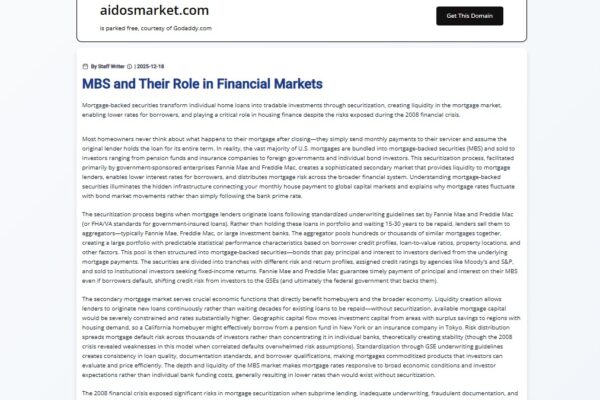FXMeridian.com Review -The Psychology of Financial Fraud
Every year, thousands of investors fall for what they believe are legitimate trading opportunities — sophisticated platforms that promise access to global markets and life-changing returns. Among the latest of these digital illusions stands FXMeridian.com, a website that appears sleek, modern, and trustworthy on the surface but hides a dangerous reality beneath.
In this investigative case study, we’ll follow the experience of one victim — “Daniel,” a 42-year-old engineer — whose story exposes the chilling tactics behind FXMeridian.com’s operation. Alongside his narrative, financial experts weigh in on how scams like this manipulate emotions, mimic legitimacy, and vanish without a trace.
Chapter 1: The Promise That Looked Perfect
When Daniel first encountered FXMeridian.com, he wasn’t looking for fast money. He was looking for stability. After a few bad years in traditional investments, he started exploring online trading.
FXMeridian.com’s ad on social media caught his eye. The message was simple but enticing:
“Trade with confidence. Earn passive income with our AI-driven forex technology.”
The ad featured realistic charts, testimonials from supposed clients, and a quote attributed to a well-known financial personality — all of it fake, though Daniel didn’t know that at the time.
The link took him to a professional-looking website filled with market data, performance charts, and bold statements like:
“Trusted by thousands of traders worldwide.”
“Withdraw your profits anytime.”
“It looked exactly like the real brokers I’d used before,” Daniel recalled. “The site was fast, clean, and professional. I had no reason to doubt it.”
That first impression was the trap.
Chapter 2: The Warm Voice on the Line
Within hours of creating an account, Daniel received a call from a friendly voice introducing herself as “Lisa,” his personal account manager.
She thanked him for joining FXMeridian and congratulated him for “taking the first step toward financial freedom.” Her tone was reassuring, calm, and practiced — just enough to make Daniel feel at ease.
“You’re in good hands, Daniel,” she told him. “Our clients average 15–20% returns monthly. The system does all the hard work. You just watch your profits grow.”
She convinced him to start with a $250 deposit, a “starter tier” meant to activate his account. Once the deposit was made, she guided him through the dashboard, showing him live trades, profit charts, and account analytics that looked authentic.
Over the next week, Daniel’s balance appeared to grow from $250 to $410. Lisa congratulated him again, emphasizing that “with a little more investment, the algorithm performs even better.”
This is how trust is built — not through pressure, but through proof. Except the proof is fabricated.
Expert Insight: The Anatomy of the Hook
According to cybersecurity analyst Dr. Theo Mendez, this tactic — showing early profits — is central to modern broker scams:
“Scammers create a controlled environment where every trade is simulated. They manipulate data feeds to show consistent growth. This illusion of success builds emotional investment. Once victims believe they’re winning, they’ll invest far more willingly.”
In short, FXMeridian wasn’t giving Daniel real profits — it was giving him permission to believe.
Chapter 3: The Bigger Deposit
As Daniel’s confidence grew, so did the persuasion. Lisa encouraged him to deposit $5,000, explaining that higher-tier accounts received better leverage and personalized trading strategies.
She assured him,
“You’re already showing strong performance. Don’t let your small account limit your earning potential. Our top clients started right where you are.”
Daniel hesitated but ultimately agreed. He transferred the money, convincing himself it was an “investment in the future.”
Almost immediately, the numbers began to soar. Within two weeks, his fake account balance displayed over $9,300. The interface showed “open trades” with green arrows and upward trends — all part of the illusion.
He decided to test it — a withdrawal of $1,000.
That’s when everything changed.
Chapter 4: The Wall Appears
Daniel’s withdrawal request was acknowledged but not processed. Instead, he received an email from the “FXMeridian Compliance Department” claiming his account was under routine verification.
Lisa reassured him it was “normal procedure” and that his funds were “100% safe.” Days passed with no progress. Then came another message — his account needed to be “upgraded to meet international compliance” before funds could be released.
The upgrade? A $1,500 deposit.
Daniel refused. He asked to withdraw his full balance instead. The tone of communication shifted instantly. Lisa became curt, distant, and less responsive. Eventually, she stopped replying altogether.
Within a week, Daniel’s login credentials no longer worked. The website still loaded, but his account was gone. Support tickets went unanswered.
By the time he realized the full extent of the fraud, FXMeridian.com had already started blocking access for multiple users — a prelude to disappearance.
Expert Insight: The Withdrawal Trap
Financial crime investigator Laura Jensen explains why scammers often target victims again during withdrawal attempts:
“They know victims are emotionally invested. The ‘extra verification’ or ‘tax payment’ tactic is psychological — it leverages sunk-cost fallacy. Victims think, ‘I’ve already come this far, maybe one more payment will unlock my funds.’ It’s one of the most effective manipulation tools in fraud psychology.”
For Daniel, the request for an additional payment wasn’t just suspicious — it was the final confirmation that he’d been deceived.
Chapter 5: The Digital Disappearance
When victims began complaining online, FXMeridian.com started erasing its digital footprint.
The About Us section was changed. Contact numbers stopped working. Live chat vanished. Eventually, the domain itself redirected to a blank page before disappearing entirely.
A reverse lookup of FXMeridian’s domain registration revealed it was created less than a year earlier using a privacy-protected offshore registrar, masking the operators’ identities. The listed corporate address — in Switzerland — pointed to a virtual office space that had no record of any company named “FXMeridian.”
Even the registration number displayed on the site matched another defunct trading scam that vanished months earlier.
The entire structure was a shell — a mirage built from digital fragments.
Expert Insight: The Serial Scam Model
Experts describe FXMeridian.com as part of a “clone cycle” — a network of scam brokers that reuse templates and branding.
According to digital fraud researcher Maya Kruger,
“These scams operate like hit-and-run operations. They rent domains, launch convincing websites, run aggressive ad campaigns for a few months, collect deposits, then vanish. Within weeks, they reappear under a new name using the same backend systems.”
It’s a revolving door of deception — efficient, automated, and global.
Chapter 6: The Human Aftermath
Daniel isn’t the only one. Across forums and complaint boards, victims share eerily similar stories:
-
“My broker told me my account was locked due to compliance and asked for another deposit.”
-
“They showed me fake profits every day, then deleted my account when I asked for withdrawal.”
-
“They promised regulation and license numbers that don’t exist anywhere.”
Each story follows the same rhythm — initial trust, visible “profits,” pressure to invest more, then total silence.
What begins as a financial transaction ends as psychological warfare. Victims describe feeling ashamed, embarrassed, and angry — not just because of the money, but because of how expertly they were manipulated.
Behind the Curtain: How FXMeridian.com Faked Credibility
FXMeridian.com’s design was a masterclass in manufactured trust.
-
Visual Authority: The site used trading graphs, SSL badges, and regulatory jargon to project professionalism.
-
Fake Testimonials: Dozens of stock images were used for client reviews, each with names like “Jonathan K.” or “Sarah M.”
-
AI Buzzwords: Claims of “proprietary trading algorithms” added a veneer of technical innovation.
-
Emotional Framing: Every interaction with “account managers” was built around motivation, encouragement, and personal rapport.
Every element served one purpose — to make hesitation feel irrational.
As Dr. Mendez notes:
“These scams are less about finance and more about persuasion. The platforms are just digital stages where psychological theater takes place.”
The Broader Pattern: Why Scams Like FXMeridian Thrive
Despite years of crackdowns, fake trading platforms continue to multiply. The reason is simple: the barriers to entry are low, and the returns for scammers are massive.
A convincing website can be built in days using pre-made templates. Payment gateways are easily integrated. Offshore privacy services keep operators hidden. By the time victims realize they’ve been duped, the domain is gone, replaced by a new scam waiting to repeat the process.
This industrial-scale deception thrives on speed, anonymity, and the emotional vulnerability of hopeful investors.
Chapter 7: Lessons from a Digital Con
Daniel’s experience with FXMeridian.com left him financially wounded but wiser. He described the aftermath as “a brutal education in trust.”
“It wasn’t just the money I lost — it was how easily I believed everything. The website looked so real. The people sounded so genuine. I thought scams looked obvious. This one didn’t.”
Experts echo his sentiment: the face of fraud has changed. Today’s scams don’t rely on crude tricks or obvious lies. They rely on sophisticated mimicry — blending genuine financial language with emotional manipulation.
As Kruger puts it,
“The most dangerous scams are the ones that look professional. FXMeridian.com is proof of that.”
Final Analysis: The Illusion of Legitimacy
At its core, FXMeridian.com was never a trading platform — it was a psychological operation disguised as one. Its technology, design, and communication were all calibrated to evoke credibility.
What it truly traded wasn’t currency or crypto — it traded in trust, belief, and time.
Once those were spent, the money followed.
The FXMeridian case shows how easily digital deception can pass as opportunity, and how even intelligent, cautious people can be drawn into systems built solely to exploit their optimism.
In the modern era of finance, legitimacy has become the ultimate illusion — and FXMeridian.com perfected it.
Report FXMeridian.com Scam and Recover Your Funds
If you have lost money to FXMeridian.com, it’s important to take action immediately. Report the scam to Jayen-consulting.com, a trusted platform that assists victims in recovering their stolen funds. The sooner you act, the better your chances of reclaiming your money and holding these fraudsters accountable.
Scam brokers like FXMeridian.com continue to target unsuspecting investors. Stay informed, avoid unregulated platforms, and report scams to protect yourself and others from financial fraud.
Stay smart. Stay safe






